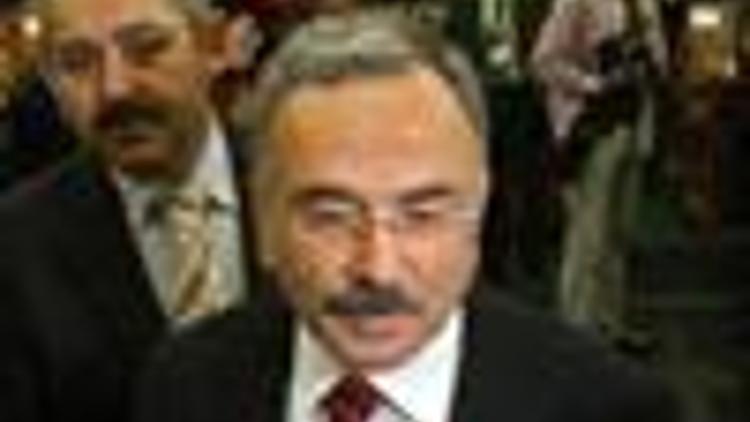Turkey reaffirms support to Nabucco, EU distances from funding
Güncelleme Tarihi:

Turkey has long been a supporter of the Nabucco pipeline project as partner country and it should be completed as soon as possible, Energy Minister Hilmi Guler told at the project's summit in Budapest organized in the wake of a recent gas dispute. The EU also expressed support but stopped short of offering direct financing for the project.(UPDATED)
"
Guler said the project was important for
The Nabucco pipeline summit, attended by representatives from a dozen countries, the European Union (EU) and two European banks, met in the wake of the recent energy crisis triggered by a gas pricing row between
Energy minister also said that it was understood that the Nabucco project could not be implemented without
EU SUPPORT
Czech Prime Minister Mirek Topolanek, who holds the European Union's rotating presidency, said it was time for the bloc to move the project forward to reduce the continent's dependence on Russian gas and diversify supply, Reuters reported.
The 3,300-kilometre (2,050-mile) Nabucco pipeline, the construction of which has yet to begin, will ultimately transport up to 31 billion cubic meters of gas each year from the Caspian Sea to western Europe via
The importance of Nabucco for the European Union (EU) and The pipeline currently has six shareholders -- OMV of Austria, MOL of Hungary, Transgaz of Romania, Bulgargaz of Bulgaria, Botas of Turkey and RWE of Germany. The consortium recently raised the cost estimate for the project to about 7.9 billion euros ($10.49 billion) from an initial projection of 4.4 billion euros. � "Having or not having energy could become a question of national sovereignty and stability," Reuters quoted Gyurcsany as saying. "It's time for the EU to take on the (financial) risks private companies are not willing to take on as they clearly see this is not simply a business enterprise." Gyurcsany called on the EU provide within months up to 300 million euros in non-refundable capital financing to Nabucco and further loans through the European Investment Bank and the European Bank for Reconstruction and Development. � But European Energy Commissioner Andris Piebalgs said that although the EU could provide loans and guarantees, it should not consider providing capital financing. � "I believe that we can facilitate getting loans in such a difficult situation of the credit crunch," Piebalgs told reporters on the sidelines of the conference. � "But not go beyond it because then it doesn't make sense, because then it's not anymore the consortium's project but a public private partnership and I'm not ready at this stage to even consider such a type of option," Piebalgs said. In a recent feasibility study, it was decided to construct the pipeline in two major stages - first to construct the complete new route from Turkish borders to Baumgarten in � The first construction phase, starting in 2011, will cover the planned route between � The second construction phase will run from 2014 until end-2015 and will consist of the construction of the remaining section between the Turkish border to

